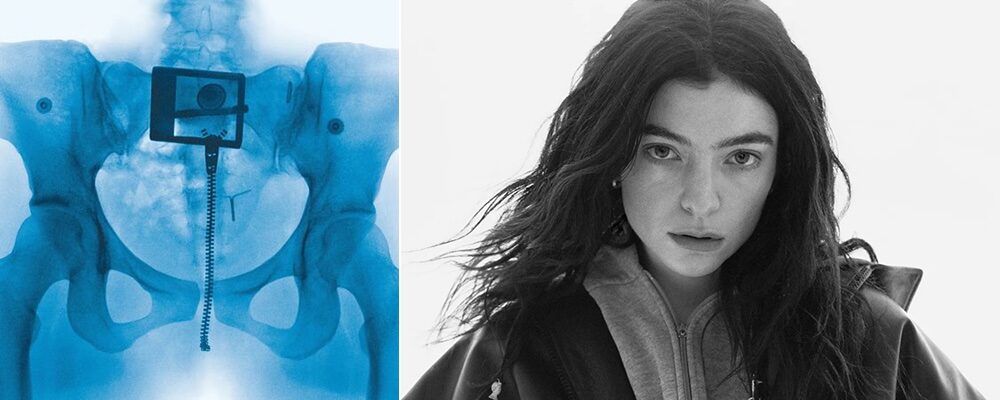Lorde Turns the Lens Inward on Intimately Introspective ‘Virgin’
Alci Rengifo
New Zealander Ella Marija Lani Yelich-O’Connor, known to the world as Lorde, is one of the most fascinating figures in contemporary pop music. She has been a celebrated addition to our indie pop music royals since the release of her 2013 debut album “Pure Heroine,” when the 16-year-old stunned the culture sphere with her brand of intellectually eloquent songwriting. Her aesthetic as the wordsmith teen introvert with a mysterious stage presence became a statement all on its own. Grammy awards followed along with instant stardom that included friendships with culture titans like David Bowie and Taylor Swift. Lorde was at the forefront of the female indie artist revolution of the mid-2010s, which also included Lana Del Rey, another instantly iconic artist whose debut album brimmed with a confessional nature. Unlike Del Rey, who, after “Born to Die,” released new material on a consistent basis, Lorde did not churn out albums and singles with a nearly annual or biannual rhythm.
The world knows that the typical waiting period between Lorde albums is four years, and the singer’s latest offering, “Virgin,” is indeed only her fourth record. It follows a period of attempted expansion by the singer into new territory, with 2017’s “Melodrama” and 2021’s “Solar Power.” It is also her most revealing work to date, charting the struggles and life of an artist now at the end of her 20s. Lorde’s music has continued to retain a presence, even if it feels like she vanishes briefly. Now with more life experience, she brings new relevance to her art, and to an ever changing cultural scene. She has grown up before our collective eyes, something that was apparent on “Melodrama,” an album that dealt with a slew of life trials, such as breakups. And she recently worked with Charli XCX for a remix of the track “Girl, So Confusing,” which Lorde has described as a collaboration that bordered on therapy.
“Virgin” is arguably one Lorde’s best albums, and a transformative, deeply personal work of introspection. The album cover itself is an x-ray of her pelvis, a visual representation of this record’s transparency. In a sign of Lorde entering a new creative phase, “Virgin” also doesn’t include longtime collaborator and producer Jack Antonoff. Instead, Jim E. Stack, who has worked with artists like Bon Iver and Dominic Fike, steps in to co-write and co-produce this record with Lorde. As Lorde shared in an interview with Apple Music’s Zane Lowe, “Virgin” taps into many recent life experiences framed by her time living in New York. The global breadth of America’s greatest city, and intimate choices such as dumping birth control, contribute to the album’s 11 tracks. References to Canal Street ring like little love letters to a city Lorde credits with sweeping her into a new sense of the world. You can imagine her in a film about NYC when she opens “What Was That” with, “A place in the city / A chair and a bed / I cover up all the mirrors / I can’t see myself yet / I wear smoke like a wedding veil / Make a meal I won’t eat / Step out into the street, alone in a sea / It comes over me.”
The raw power of “Virgin” stems from Lorde dismissing shyness about various topics, including breakups, eating disorders and that sense of being brutal with oneself so typical of natural outsiders. Such a roller coaster can be searing when adapting to a new city. Even when Lorde still defines “cool” and adds that sheen to where she records (the album was recorded at the legendary Electric Lady Studios), her artistic persona remains alluringly grounded. Amid the swirl of intense topics in the album, a song like “Favourite Daughter” is an endearing letter to the singer’s mom (“I was a singer / You were my fan / When no one gave a damn”). Hints of general identity fluidity pop up in the song “Hammer” when Lorde sings, “Some days I’m a woman, some days I’m a man.” In the song “Shapeshifter,” Lorde explores sex as validation, having been inspired by Tracey Emin’s sculpture, “Everyone I Have Ever Slept With 1963–1995.” The lyrics connect the inspiration to the singer’s own personal experience when she sings, “Everyone that I’ve slept with / All the metal that I’ve messaged / If I’m fine without it, why can’t I stop? / Everything I want speeding up my pulse / I don’t sleep, don’t dream at all / Give ’em nothing personal / So I’m not affected.”
“Virgin” shows Lorde’s immense growth, as an individual and as an artist, but keeps the essence that helped establish her as a standout 12 years ago. If her albums take four years to get released, the reason is in the content itself, which never verges on being a factory product. Lyrically, Lorde is an heir to artists like Patti Smith and Alanis Morissette, not in genre but in terms of the richness of what her songs convey with undiluted emotion. There is an eternal hint of shyness in her presentation, even though she’s already on a cultural pedestal. In all its honesty and messiness, “Virgin” is an ecstatic transformation for Lorde and a justification for that pedestal. Listeners can still relate to this indie pop giant because instead of overwrought confidence, she is singing about insecurities that can plague us all, when we look in the mirror or wonder why someone didn’t love us back.
“Virgin” releases June 27 on Apple Music.

